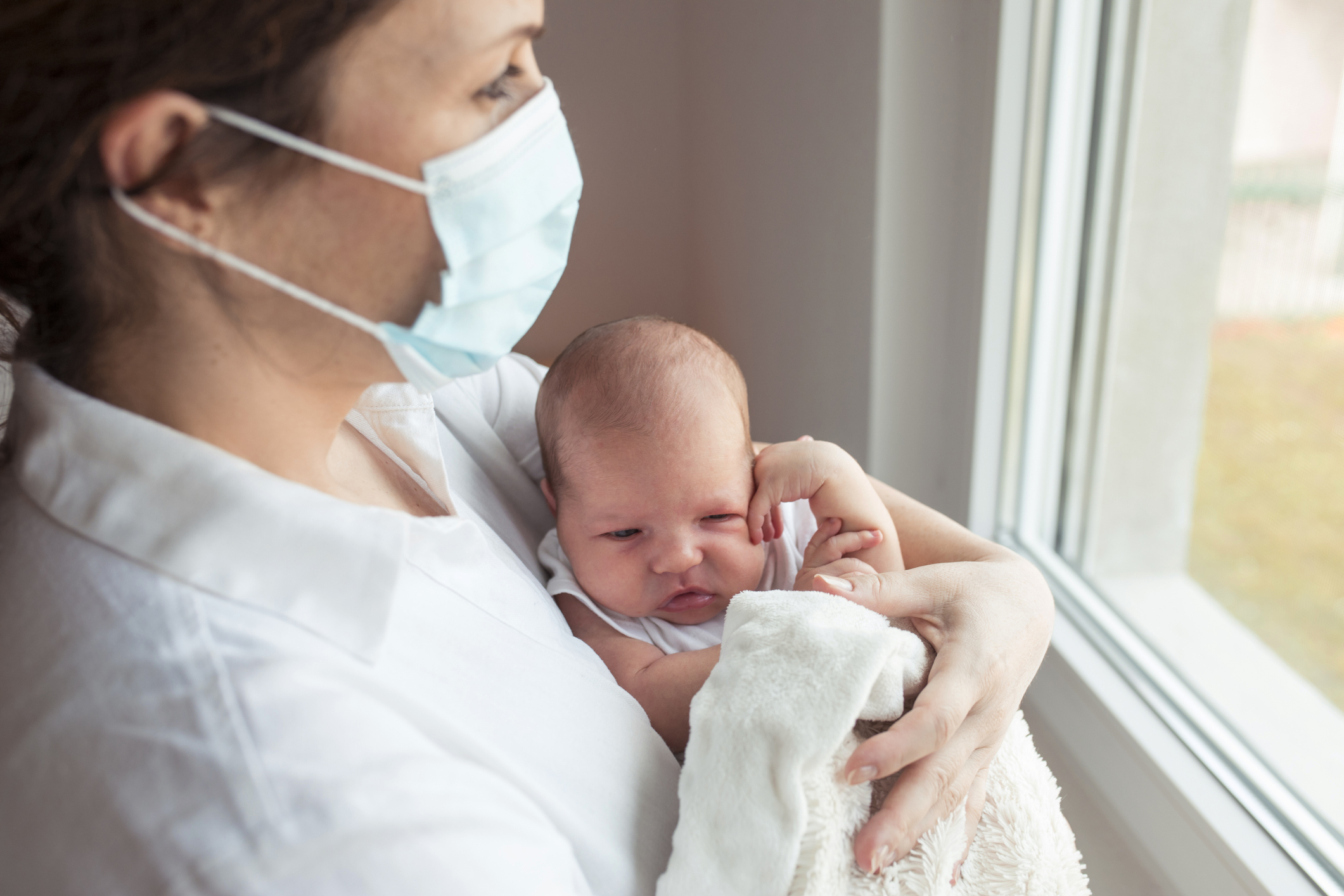
Even though large swaths of the country have started to ease certain restrictions to allow Americans to venture out and enjoy warm weather activities, it’s important now more than ever to be cognizant that COVID-19 is still a major infectious disease that can spread rapidly and cause serious illness. As cases have started to spike again in several parts of the U.S., and some states are planning to close down again, new parents have shared concerns as to how the pandemic will affect their baby’s health and safety.
For newborns, the same precautions and prevention strategies we use for older kids apply, including building a healthy immune system from day one. New and expecting parents are learning from these experiences and adapting to a healthy, socially distant lifestyle. In areas where it is becoming safe to slowly and safely venture out and about, many new parents are still nervous and at a loss when trying to safely reenter the world with their newborn.
As a pediatrician and mother of three children, I get it. I’m nervous too, and am taking every precaution possible to ensure that my family and I are staying safe during these times. Although there is not a one-size-fits-all approach, here are some things every new parent should keep in mind right now:
Schedule an in-person and telehealth appointment with your pediatrician
The pediatrician’s office – the very place we take our babies for advice and healing – has become a limited prospect for many during this time. While healthcare facilities and private pediatrician offices are taking every precaution to disinfect and minimize the number of individuals in the office at one time, it may be possible to limit unnecessary doctor’s office visits during the pandemic by using telehealth services. There definitely are times where your child’s pediatrician will need to physically examine your baby in the office, such as the first well child checkup after you leave the hospital, but there also may be times where a follow-up visit or any questions that you have can easily be seen and answered via a telehealth visit. A telehealth visit can help obtain history and information to shorten the duration of the in-person visit when you do see your pediatrician in person for the quick hands-on exam and vaccinations.
Nutrition, sleep, and exercise
When your pediatrician gives you the OK to start solids with your baby around 4 to 6 months of age, this can be an exciting time for many new parents. There’s no rush, but know that everything you are feeding your baby at this age should serve an important role in teaching him or her how to move food around their mouth and swallow, provide proper nutrition, and help their body prevent food allergies by introducing allergic foods early and frequently. In addition to proper nutrition, regular sleep (hopefully sleeping through the night by 6 months) and exercise (from tummy time to crawling) is also critical in helping your baby grow and develop.
Building baby’s immune system
The first 6 months of baby’s life are filled with milestones, and the development of baby’s immune system is a big one. Baby’s gut health plays a big role in this process, as the type of bacteria present in baby’s gut contributes to the development of immune function, both now and as they grow. Since most babies born in the U.S. today lack the specific type of good bacteria in their tummies that is needed to help develop their immune system, your pediatrician may recommend giving your baby a probiotic supplement. The reason 90% of babies don’t have the key bacteria, also known at B. infantis, is because the natural process of transferring this good bacteria during the birthing process has been disrupted by the rise in antibiotic use and C-section deliveries.
This is why I talk to moms about giving their baby an infant probiotic that contains a specific strain of B. infantis (EVC001) — I personally like Evivo — to help reduce the abundance of bad gut bacteria, which is linked to conditions such as colic, eczema, diaper rash, obesity, diabetes, asthma, and more. While probiotics are not meant to protect your baby against COVID-19, it is key to ensuring baby’s gut health and overall immune development during infancy.
Minimizing baby’s exposure
As new parents start to adapt to the new norm, they should also be aware of the best options possible that will help minimize their baby’s risk toward infection. As we know, breastfeeding is still the best form of nutrition for a little one. In most cases, moms who are sick can still continue to breastfeed, as long as they take proper precautions such as wearing a mask and washing hands. In some cases where a mom has COVID-19 or another serious illness, your doctor may recommend that you be separated from baby for a period of time. In most cases, you can still pump and allow another caregiver to bottle feed your baby your breast milk.
During most illness seasons, especially now with COVID-19, we strongly recommend you keep unessential visitors away to minimize your families risk of getting sick. If you feel uneasy about telling friends and relatives that they can’t come over and see the baby, it’s OK to blame it on the pediatrician and instead offer to Zoom or FaceTime with them so they can see and bond with your little one from a safe distance. If there are any essential relatives who you want or need to come over and see your baby, make sure they have quarantined at home and haven’t had any signs or symptoms of illness in the past two weeks.
With that in mind, continue to socially distance, wash your hands, and wear a mask when you are in public. And when you must see others, just being outside dramatically decreases the risks associated with transmission of COVID-19, so consider limiting relatives or friends to outdoor visits, as it’s a much safer alternative than being inside. Before anyone touches or holds baby, make sure they wash their hands with soap and water, or use an alcohol-based hand sanitizer for at least 20 seconds if soap and water are not available.
Life with a newborn in the new normal
Regardless of COVID-19 putting a pause on our daily life, it doesn’t mean we should put a pause on our children’s health. As I continue to see patients and new moms on a daily basis, I try to reassure them of the proactive ways they can keep their family safe during these uncertain times. By utilizing these key precautions, new parents will also have an easier transition as they introduce their baby to the outside world for the first time and prepare them for what may come next.




